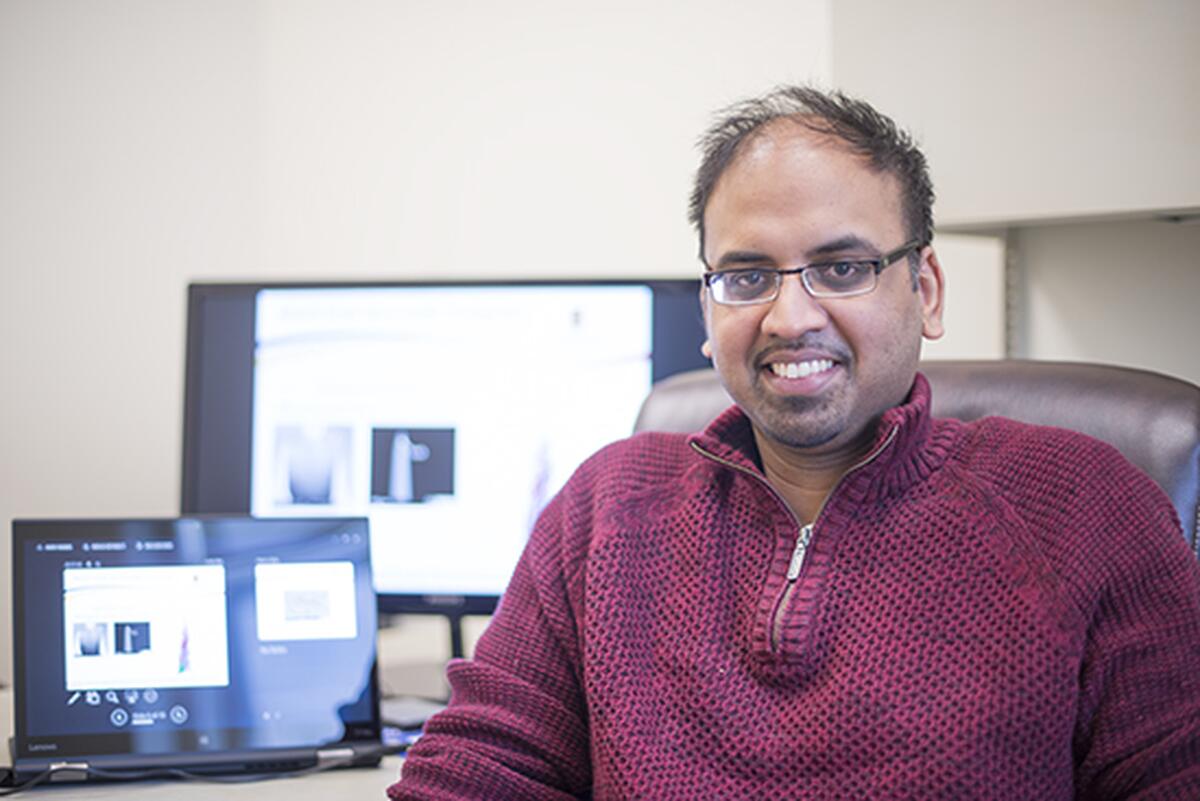
Dr. Suraj Persaud, University Network of Excellence in Nuclear Engineering Research Chair.
Earlier this year, Dr. Suraj Persaud in the Department of Mechanical and Materials Engineering was appointed the University Network of Excellence in Nuclear Engineering (UNENE) Research Chair in Corrosion Control and Materials Performance. The appointment and the research program are supported by Ontario Power Generation, Bruce Power, and Canadian Nuclear Laboratories (CNL). Dr. Persaud is a recognized expert in corrosion and materials degradation in the Canadian nuclear industry, and has performed research of both national and international importance. Previously a research scientist at CNL, he has performed research examining the corrosion of materials in Canadian nuclear power plants, with particular emphasis on nanoscale mechanisms and the combined effect of stress and corrosion. The Natural Sciences and Engineering Research Council of Canada (NSERC) has provided an Alliance grant in support to Dr. Persaud’s research, bringing the total funding to just over two million dollars.
With growing climate change concerns in Canada, nuclear energy provides the benefits of an efficient, carbon-free energy source. Canada and the nuclear industry have recognized this, and are actively pursuing refurbishment of nuclear power plants (NPP) and new builds, such as small modular reactors. For these initiatives to be realized, environmental, safety, and economic concerns of NPPs must be addressed; these concerns are linked with materials performance and corrosion control, which impacts the lifetime of components in NPPs. As the UNENE Research Chair, Dr. Persaud’s research aims to advance the understanding of metallic corrosion in nuclear-relevant environments. A focus will be the application of innovative microscopy methods to understand corrosion at the nanoscale. The combined action of stress and corrosion (stress corrosion cracking (SCC)) will be important, and complementary electrochemical work will be performed. A goal is to identify corrosion and SCC “precursors”, which are nanoscale changes in chemical or material properties that occur prior to the onset of degradation. Another objective is to better understand irradiation effects on corrosion, which is important long-term for Canadian plants as radiation dose increases with life extension.
Establishment of Dr. Persaud’s program and this UNENE Research Chair complements the existing expertise in the nuclear group at Queen’s, in particular there will be extensive collaboration with the existing UNENE Research Chair in Nuclear Materials. Graduate students will benefit from the multi-disciplinary, collaborative, and inclusive environment already established by the team of nuclear researchers at Queen’s. Students will have exciting opportunities to showcase their work at international conferences, interact with industry and develop multi-disciplinary skills. Research will also draw heavily on the novel facilities (i.e. proton accelerator) and microscopes available at the Reactor Materials Testing Laboratory (RMTL) and the high temperature corrosion laboratory at Queen’s, as well as other state-of-the-art microscopy facilities at southern Ontario universities. Establishment of this new UNENE Research Chair will build a critical mass of expertise and capabilities at Queen’s in nuclear materials and provides the opportunity for international growth. We are delighted to establish this Chair and Queen’s University and look forward to the exciting research ahead!